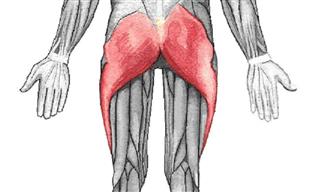Nighttime coughs can be disruptive and irritating, as they prevent you from getting the necessary sleep that you need for sickness recovery and everyday functioning. Moreover, lying down worsens the cough because it encourages mucus accumulation in the airways. Not to mention that when we are supine or prone, our lung expansion capacity decreases, which triggers this involuntary reflex.
Related: Learn How to Naturally Cure Your Child's Cough
If you can’t sleep because of a cough, remember you are not alone. A prevalent cause leading individuals with a cough to seek medical attention is the disturbance in their sleep patterns. Sleeping with a cough can be a struggle, but there are measures you can take to enhance the quality of your nighttime rest until the issue subsides.
Nighttime relief for wet cough

Wet coughs, also known as productive coughs, are marked by an abundance of mucus in the chest, throat, and mouth.
1. Use an expectorant

If you find yourself with a wet cough during the day, medical professionals say you must engage in intentional coughing. This action helps eliminate phlegm or mucus. To enhance this process, consider using an over-the-counter medication expectorant like guaifenesin, which effectively thins out mucus, making it simpler to expel.
2. Drink warm liquids

If your throat is irritated from coughing, a steamy, warm drink can provide relief and help loosen mucus. Warm water with honey and lemon, herbal teas, and broths are all good options. Remember to finish your beverage at least one hour before going to bed.
3. Take a nasal saline spray

You might be able to thin out any secretions by using a nasal saline spray, which is a salt and water solution. A salt-water gargle (a teaspoon of salt in a glass of warm water) may also be beneficial.
4. Use a humidifier

Use a cool-mist humidifier in your bedroom at night. Increasing the humidity in the air can help ease both dry and wet coughs. You should aim to keep the humidity in your room between 40% and 50%.
5. Have a cough suppressant at night
Cough suppressants, also known as antitussives, suppress the cough reflex. They relieve dry coughs during the night by keeping the cough reflex from being triggered while you sleep.
You can try using an over-the-counter cough suppressant if you don't have any other health issues, such as high blood pressure.
Related: Do You Have a Bad Cough? Here's What Might be Causing it!
6. Take a hot shower before bed
Steam from a warm shower can help open your nasal passages by releasing mucus from your sinuses and chest. For best results, take one about an hour before hitting the bed.
Nighttime relief for dry cough

Having gastroesophageal reflux disease, asthma, or an upper respiratory infection increases the chances of having a dry cough. The same home treatments effective for a wet cough can play a role in alleviating a dry cough. Furthermore, take note of the following suggestions from experts:
1. Take a lozenge

Throat lozenges, easily available at drugstores and retailers, come in a variety of flavors. Some feature menthol for sinus relief, while others include vitamin C or soothing medications for a sore throat. Remember to finish the lozenge before lying down to prevent choking. Avoid giving lozenges to young children due to the risk of choking.
2. Use a decongestant

Decongestants are effective in alleviating the postnasal drip responsible for a persistent nighttime cough. Use an over-the-counter decongestant, which comes in tablet or nasal spray form, when allergies flare up. But before using any decongestant, speak with your doctor if you have high blood pressure.
3. Drink plenty of fluids

Maintaining proper hydration becomes important when you're unwell. Drinking plenty of water will help keep your throat hydrated and protect it from things that could irritate it or cause you to cough. Make it a point to drink eight glasses of water a day, with a cutoff of one hour before bed, to avoid late-night potty trips.
4. Keep your bedding clean

This will help minimize dust and other allergens that can irritate your throat. The American Academy of Asthma, Allergy, and Immunology suggests washing your sheets, mattress covers, blankets, and pillowcases once a week in hot water at 130°F (54.4°C) or higher.
The best sleeping positions for cough relief

Doctors recommend elevating your head, either by using an extra pillow or adjusting the bed angle. This prevents excessive drainage at the back of your throat. However, be mindful of not elevating too much, as it may lead to neck pain.
For dry coughs, sleeping on your side reduces irritation, while lying flat on your back can worsen postnasal drip.
Related: 10 of My Favorite Natural Remedies to Quell a Cough
Reasons you may be coughing

Coughing can be caused by a variety of conditions and situations. Identifying the specific cause of your cough can facilitate the selection of a suitable remedy.
The following conditions and factors are all known to cause coughing:
- Cold or flu.
- Bronchitis or pneumonia.
- Whooping cough.
- Gastroesophageal reflux disease (GERD).
- Asthma.
- Allergies.
- Sleep apnea.
- Smoking.
- Some medicines like nonsteroidal anti-inflammatory drugs (NSAIDs), beta-blockers, and ACE inhibitors.
In some cases, these causes may contribute to postnasal drip, or mucus running down the back of your throat. If the cause of your cough is unclear, a physician may prescribe chest X-rays, lab tests, scope examinations, or CT scans to pinpoint the underlying problem.
When to talk to your doctor
The common cold typically lasts for about seven to 10 days, accompanied by symptoms like a persistent cough. If your cough or cold symptoms persist beyond this timeframe or escalate in intensity, it's recommended to consult with your doctor.
While many people recover without complications, those with compromised immune systems or specific medical conditions face an increased risk of the cold progressing into more severe infections, such as pneumonia or bronchitis.
 Go to BabaMail
Go to BabaMail




































